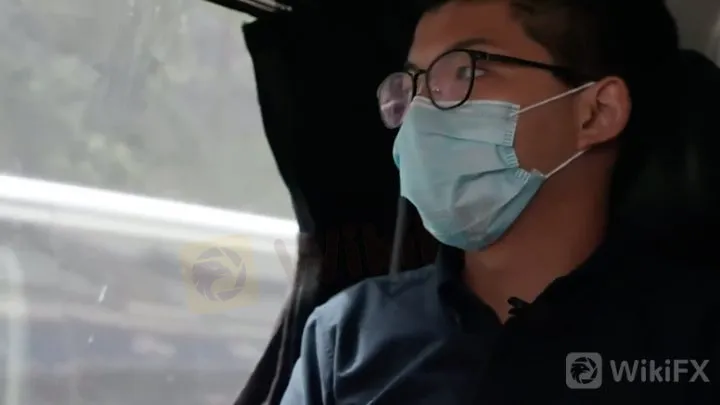简体中文
繁體中文
English
Pусский
日本語
ภาษาไทย
Tiếng Việt
Bahasa Indonesia
Español
हिन्दी
Filippiiniläinen
Français
Deutsch
Português
Türkçe
한국어
العربية
Coronavirus: Hong Kong hospitals face 'collapse' as outbreak grows
Abstract:Image copyrightGetty ImagesImage caption Carrie Lam has urged residents to stay home as the city gra
Image copyrightGetty ImagesImage caption
Carrie Lam has urged residents to stay home as the city grapples with a growing outbreak
Hong Kong leader Carrie Lam has warned that the city's hospital system could face “collapse” as it grapples with a sharp rise in coronavirus cases.
She said the city was “on the verge of a large-scale community outbreak”, urging people to stay indoors.
New regulations, including mandatory face masks and the closure of dine-in restaurants, kicked in on Wednesday.
Hong Kong - which had early success against Covid-19 - is now regularly reporting over 100 new daily cases.
Less than a month ago, the average number of new daily cases was under 10.
What did Carrie Lam say?
In a statement late on Tuesday, Ms Lam warned the city was on the “verge of a large-scale community outbreak, which may lead to a collapse of our hospital system and cost lives, especially of the elderly”.
She called on residents to “follow strictly to social distancing measures and stay at home as far as possible”.
Hong Kong reports biggest one-day rise in cases
Her remarks come as Hong Kong confirmed another 106 coronavirus cases on Tuesday, and reported its 23rd overall death.
A record 145 cases were recorded on Monday.
What are the new restrictions?
From Wednesday, dining in restaurants is banned, and only two people from different households can meet, under the toughest rules Hong Kong has adopted so far.
It's also now compulsory for face masks to be worn in all public places.
It was earlier announced that spaces like bars, gyms and beauty parlours would be closed.
At the start of the month, public gatherings of up to 50 people were allowed - but that was reduced to four, and now two.
Image copyrightReutersImage caption
Dining in restaurants has been banned
Wasn't Hong Kong a virus success story?
It definitely looked that way to begin with.
At the start of the outbreak, cross-border travel with China was sharply reduced, “track and trace” was introduced, and other restrictions were imposed.
Earlier this year, the city went weeks without a locally transmitted case.
But as life started to go back to normal, a rise in locally transmitted cases was recorded. The average number of new cases rose from single figures at the start of the month, to more than 120 now.
One professor at the University of Hong Kong said the cases had probably emerged due to “flaws in border procedures in Hong Kong”.
Jin Dongyan told the Global Times that “patients from overseas may have brought the virus to communities which resulted in the current local transmission”.
The latest person to die from the virus was a resident of a care home where at least 45 infections have been recorded.
Local scientists have voiced fears that a strain of the virus circulating in Hong Kong could cause greater damage.
It is said to have not mutated for at least 22 days, meaning it could have adapted well to humans, becoming easier to transmit.
Will the election still take place?
The new measures come amid reports that elections to Hong Kong's parliament - the Legislative Council - could be postponed by a year.
News outlets HK01, Hong Kong Economic Times and TVB said the government had made the decision, which is yet to be formally announced, because of coronavirus concerns.
Why people are scared of Hong Kong's new law
The elections were set to be held on 6 September.
Opposition figures however, have suggested that the postponement is designed to dissipate anger over the new national security law.

Media playback is unsupported on your device
Media captionHong Kong activist Joshua Wong believes he is now being followed after the new security law was passed
Disclaimer:
The views in this article only represent the author's personal views, and do not constitute investment advice on this platform. This platform does not guarantee the accuracy, completeness and timeliness of the information in the article, and will not be liable for any loss caused by the use of or reliance on the information in the article.
WikiFX Broker
Latest News
CySEC Warns Against Unauthorized Investment Firms in Cyprus
Why Even the Highly Educated Fall Victim to Investment Scams?
Warning Against Globalmarketsbull & Cryptclubmarket
Dukascopy Bank Expands Trading Account Base Currencies
UK Sets Stage for Stablecoin Regulation and Staking Exemption
Axi Bids AUD 52M to Acquire Low-Cost Broker SelfWealth, Outbidding Competitor Bell Financial
Crypto Influencer's Body Found Months After Kidnapping
STARTRADER Issues Alerts on Fake Sites and Unauthorized Apps
Italy’s CONSOB Blocks Seven Unregistered Financial Websites
Bitfinex Hacker Ilya Lichtenstein Sentenced to 5 Years in Prison
Currency Calculator


